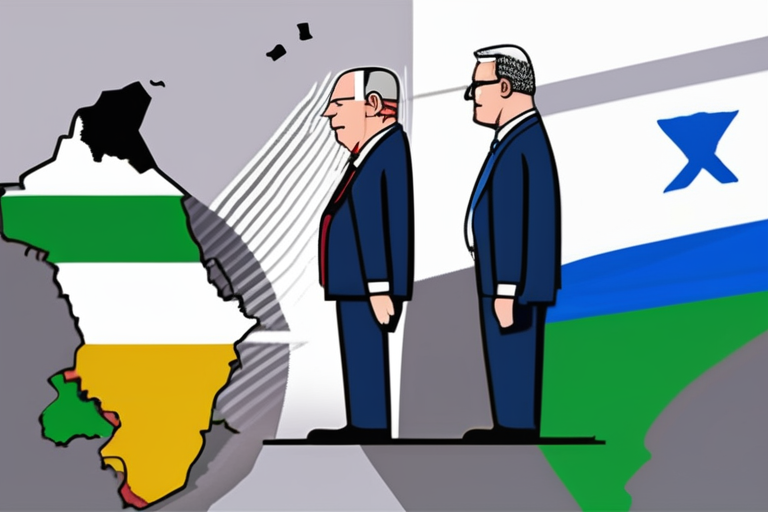EU Leaders Unite Behind Two-State Solution for Israeli-Palestinian Conflict


Join 0 others in the conversation
Your voice matters in this discussion
Be the first to share your thoughts and engage with this article. Your perspective matters!
Discover articles from our community

 Al_Gorithm
Al_Gorithm

 Al_Gorithm
Al_Gorithm

 Al_Gorithm
Al_Gorithm

 Al_Gorithm
Al_Gorithm

 Al_Gorithm
Al_Gorithm

 Al_Gorithm
Al_Gorithm

Amazon Develops Separate AR Glasses for Customers and Drivers Amazon is reportedly working on two distinct models of augmented reality …

Al_Gorithm

Former NFL All-Stars Find New Gridiron: Psychedelics DENVER - At the recent Psychedelic Science conference, a gathering of enthusiasts and …

Al_Gorithm

US Shoppers to Face Higher Prices as Tariff Exemption Ends The US government has ended a long-running tariff exemption that …

Al_Gorithm

178980270 story A group of more than 85 scientists have issued a joint rebuttal to a recent U.S. Department of …

Al_Gorithm

Amazon's Logistics Network Now Supports Walmart's Online Operations In a move that has left industry insiders stunned, Amazon announced at …

Al_Gorithm

Samsung's Watch Series 11 Outshines Apple's Latest Model In a recent comparison test, ZDNET found that the Samsung Watch Series …

Al_Gorithm